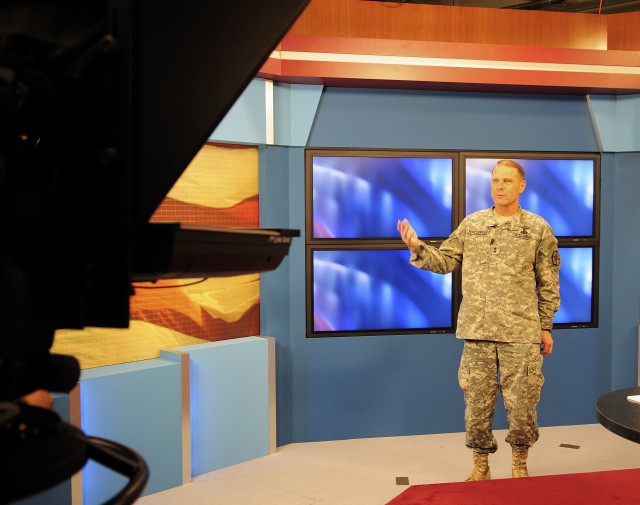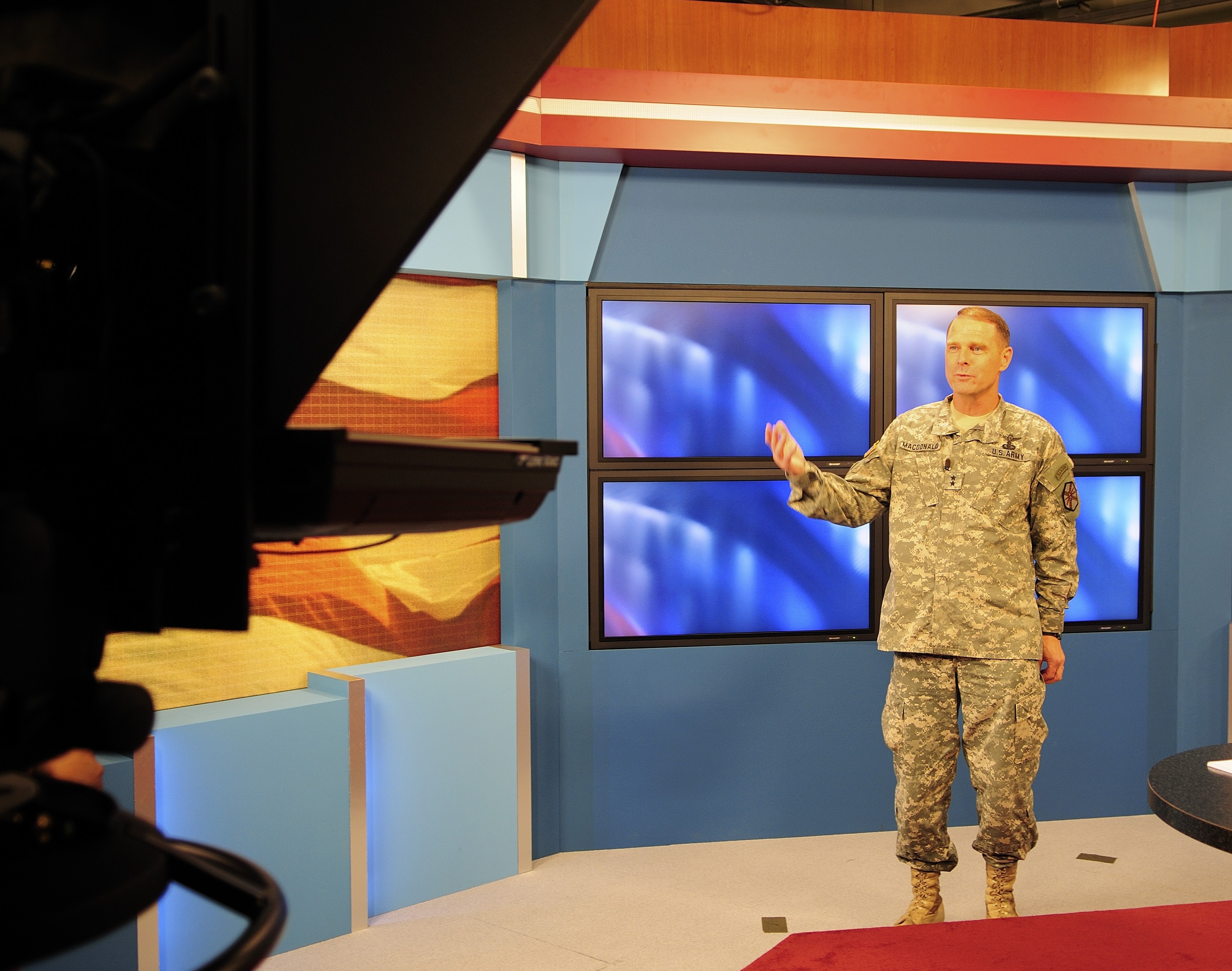WASHINGTON (Army News Service, Aug. 26, 2008) - Maj. Gen. John Macdonald told bloggers last week in a Pentagon teleconference that the Army Family Action Plan through its series of workshops has resolved or reviewed some 633 Soldier and Army family issues since inception in 1983 and that it will continue to be sustainable.
The nearly 25-year old plan, first formulated by then-chief of staff of the Army Gen. John A. Wickham's "white paper," speaks to the principle that "the stronger the family, the stronger the Army, because strong families improve combat readiness."
"It has words in it that resound today, in terms of resilience, in strength," said Macdonald, commander of Family, Morale, Welfare and Recreation command. "This is not welfare, not 'gimmes,' but things that Army families depend on to be able to persevere through this persistent conflict."
Addressing the Army Family Covenant which came into play last year, Macdonald said the impact across installations has been dramatic and sustainable.
"Most of programs are funded by our global war on terrorism supplemental dollars," he explained. "They will be sustainable, because we've taken about half of those dollars and put them into the base funding program. In the long term, we won't retain an all-volunteer force unless we retain Army families."
Within the covenant, the Army has also been modifying and developing Family Readiness Groups further, which has opportunities for spouses that are home when units are deployed.
Becky Pillsbury, wife of Maj. Gen. James H. Pillsbury, who also attended the teleconference and has served on the workshops to determine Soldier and Family needs and wants said the Army has started a grassroots effort called "Still Serving Veterans."
"Only 3 percent of those returning have lost limbs and yet that is who the people think of when they think of severely wounded veterans; the rest of them have multiple injuries," she said. "Most of them have post traumatic stress disorder or traumatic brain injury and these are the ones who may decide to get out of the military."
The military is doing everything it can to keep these veterans, if they wish to continue serving, Pillsbury said. Many are National Guard and Reserve Soldiers, and she said if they get out and return to their hometowns many don't realize the many benefits to which they are entitled.
"So, we wrap our arms around them and their families to provide some of them counseling and to help them get job skills," she said. "We have a university that will broadcast classes into their room at Walter Reed, at no charge so they can go ahead and get their bachelors, their masters. They will get life-skill credits in the college and we do everything to get them employable and help to find them jobs."
Family Readiness Support Assistance which has been around for about eight months is now funded.
"We're finally getting after our geographically dispersed Soldiers. Before we really couldn't conceive of how to use the technology to get to our Reserve, National Guard, Engineer District, ROTC recruiting battalion Soldiers and Families," said Macdonald. "We're doing that with Military One Source and what we call the 'Army Integrated Family Support Network' which will be unveiled in October."
Macdonald also said the Army is looking at teaching combat lifesavers to look for PTSD symptoms in Soldiers. He has been talking with Brig. Gen. Loree K. Sutton, director of the Defense Centers of Excellence for Psychological Health and Traumatic Brain Injury about incorporating an additional two days of training so combat lifesavers can identify PTSD symptoms.
Pillsbury also said the Military Child Education Coalition has been a huge change. With military families moving from one duty station to another, children often have a tough time adjusting.
"So, we're doing things like getting counselors in the schools to help the military child with transition," she said. "The hardest thing in the world the first day of school is who are you going to sit with at lunch' They made sure that they would assign a buddy to go with them. Just knowing things like this as a mother was a huge thing for me. That made a tremendous difference in the ease of moves for my children and thus for my husband and me."
Macdonald, whose father was career-Army and whose wife is also in the Army added: "It's the Army taking responsibility not for just its on-post schools, but for where 70 percent of its families live, and that's off-post.
"I saw this written recently," he said. "'A Soldier will write a check, 'payee: freedom,' and put down an arm or a leg or his life, but he will not risk his children, ever.'
"When you realize how important children are to our NCOs and our young officers, they will not risk their children's education or their safety, security or future," he said. "So schools are a huge deal to our Army families."


Social Sharing